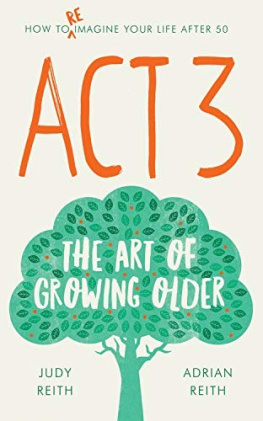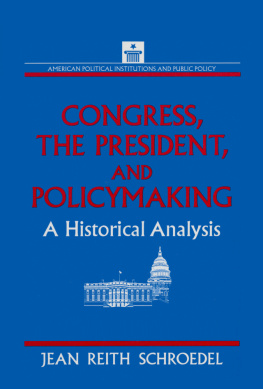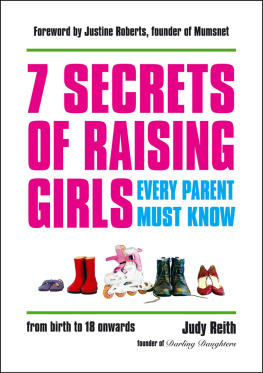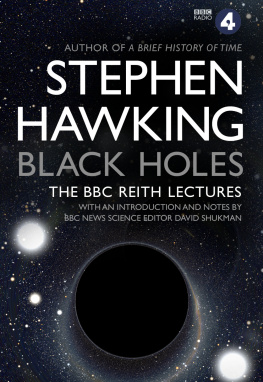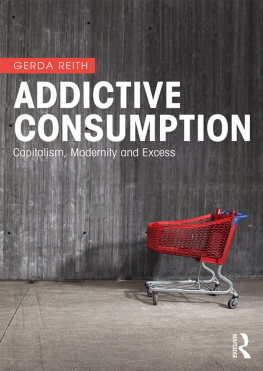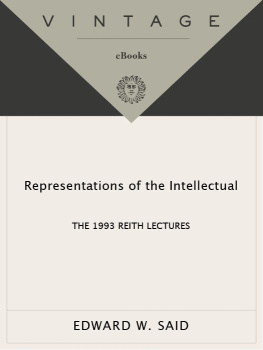ADRIAN REITH JUDY REITH - ACT 3 : the art of growing older.
Here you can read online ADRIAN REITH JUDY REITH - ACT 3 : the art of growing older. full text of the book (entire story) in english for free. Download pdf and epub, get meaning, cover and reviews about this ebook. City: S.l., year: 2020, publisher: UNBOUND, genre: Home and family. Description of the work, (preface) as well as reviews are available. Best literature library LitArk.com created for fans of good reading and offers a wide selection of genres:
Romance novel
Science fiction
Adventure
Detective
Science
History
Home and family
Prose
Art
Politics
Computer
Non-fiction
Religion
Business
Children
Humor
Choose a favorite category and find really read worthwhile books. Enjoy immersion in the world of imagination, feel the emotions of the characters or learn something new for yourself, make an fascinating discovery.
- Book:ACT 3 : the art of growing older.
- Author:
- Publisher:UNBOUND
- Genre:
- Year:2020
- City:S.l.
- Rating:4 / 5
- Favourites:Add to favourites
- Your mark:
- 80
- 1
- 2
- 3
- 4
- 5
ACT 3 : the art of growing older.: summary, description and annotation
We offer to read an annotation, description, summary or preface (depends on what the author of the book "ACT 3 : the art of growing older." wrote himself). If you haven't found the necessary information about the book — write in the comments, we will try to find it.
ACT 3 : the art of growing older. — read online for free the complete book (whole text) full work
Below is the text of the book, divided by pages. System saving the place of the last page read, allows you to conveniently read the book "ACT 3 : the art of growing older." online for free, without having to search again every time where you left off. Put a bookmark, and you can go to the page where you finished reading at any time.
Font size:
Interval:
Bookmark:
A Note on the Authors
Judy Reith and Adrian Reith are professional coaches and writers. They have been married for over thirty years and have three adult children. They are definitely in Act 3. They work year-round with individuals and groups to create lasting, profound change in life at all stages and particularly in Act 3, using the methods explained in this book. Together they have run multiple Guardian Masterclasses, corporate and community seminars and weekend workshops.
Also available by Judy Reith
7 Secrets of Raising Girls Every Parent Must Know
Be a Great Mum
Transform Living with Teenagers
For Rosie, Tilly, Phoebe and Nick because you
will be choosing our care home
With special thanks to Professor Richard Vincent for the chapter on health, and grateful thanks also to Michael Leunig for his cartoons
Contents
Chapter One
How to Live the Life You Never Had
You cannot go back and change the beginning, but you can start where you are and change the ending.James R. Sherman, Rejection
You are making history. Something strange has happened to the baby-boom generation and those who came after our picture of old people no longer fits. Our idea of retirement has retired. Were undergoing a major awakening of whats possible in our 50s, 60s, 70s and beyond.
A woman we know has had her first baby shes 51.Idols from our youth are active and frighteningly fit. Sit down, Mick Jagger.70- and 80-year-olds are everywhere cycling, in Lycra. With straight faces.Somethings changed. Life has an extra act.
We call it Act 3.
Act 3 is the period from around 50 to 75+ that used to be called retirement. Its now a massive opportunity to enjoy better health and fulfil higher expectations for many more years. No previous generation has had this opportunity.
We, your authors, are in Act 3 ourselves, and in recent years, our eyes and ears have been alerted to those who are up to all sorts. They are making their Act 3 the time when they use their imagination, their strengths and their hard-won wisdom to create a new life full of adventure, meaning and fulfillment not regrets. It seems there is an art to this, some sort of insider knowledge and certain secrets that need sharing. Some people have really turned on the lights in their twilight years and they have inspired us. Weve interviewed many people for this book from many backgrounds theyve been generous in sharing their Act 3 adventures. Some contributors have been given a pseudonym to protect their privacy; others were happy to share their stories more openly.
These stories, along with our coaching experience, are given here to inspire you to create and live your own Act 3 years so you spring out of bed in the morning, with a To Do list that meets your ambitions, your values, not somebody elses.
For some, that might mean travel, for others volunteering or spending time with grandchildren. Or adopting children, as we shall see. It could mean starting a business or a charity. Is it time to write that book, take up painting or learn a new language? Maybe you have always wanted to dance or play an instrument or sail to New Zealand. Its not too late. Well tell you about Cecil who retrained as a dancer and is now on tour, in his late 60s. Or Trish, aged 70, who has found meaning and purpose in starting an online make-up range for older women. Then theres John, the Cambridge professor of neuroscience now running a caf with his son, where milk is poured from a jug John made in his pottery studio.
These people, and many more, are all reinventing the old, tired picture of retirement, and they all share three things in common. As they approached retirement age, they had a great desire to do something meaningful and enjoyable in this extra time. They gave themselves permission to go after these goals and make them a reality. And they keep in mind there is increasing risk in Act 3 that something physical, mental, financial or fatal could scupper dreams and plans so best get on with it.
Before bits of your body pack up, negativity kicks in, money worries overwhelm you or you breathe your last, what do you want your Act 3 years to be about? Thats the only purpose of the book thats in your hands right now.
So, where are you at this stage in your life, and what do we mean by Acts 1, 2, 3 and 4?
Act 1, Act 2, Act 3, Act 4
Act 1 thats the growing up bit. If it was a season, youd call it spring. The baby, the child, the teenager and the young adult. Act 1 usually merges into Act 2 when you leave home, but in the current economic climate, that is not as clearly defined as it once was, with many adult children returning to the family nest when jobs, money or romance issues make it the best or only option.
Act 2 is the summertime stage when youre independent from your parents, and carries on through your 30s, 40s and, for some, into their 50s or beyond. Act 2 is busy. There is money to earn, a career to grow, maybe a life partner or long-term relationships and, for many, raising children, and coping with the decline of their own parents.
Act 3 and then for many comes retirement, which historically has meant pipe and slippers, decline and death. We could summarise Act 3 as a big time of change and increasing loss. From eyesight to waistlines, routines of work and family life, its all change. And for most women, the physical and emotional upheaval of the menopause will be a major part of their transition into Act 3, and can feel like the end of the world. (It isnt.)
When the state old-age pension was first introduced in 1908, it was for the one in four people who had made it to age 70, and the life expectancy then was an average of nine more years. Therefore, not that long for the state to provide for not that many oldies. A century later, we have millions living longer, creating a huge burden on the state purse.
On the upside, we have this whole new chunk of time to do something with, we are in better health, and with more resources than any previous generation. The autumn of our lives, Act 3.
Act 4 and after autumn, comes the winter. Our Act 4, when we can be as helpless as a baby, but with the mind of a sage, sitting in a care home with a TV on at full volume. But were not there yet.
Were interested in Act 3, because this is an exciting time and full of potential.
Moving from Act 2 to Act 3 Can Get Eggy
In the same way, the Act 2 experiences youve had to leave home, maybe more education, to stand on your own feet, to make a career, to earn some money, perhaps make a relationship, make a home, maybe create a family, take care of health and responsibilities can be so draining that it results in scrambled-egg brain at the beginning of Act 3. Maybe you forgot what you came for. Is this it? Who am I now? Who do I want to be? Where am I headed?
Scrambled-egg brain: At the end of a long day cycling Lands End to John oGroats (870 miles from the bottom of England to the very top of Scotland), my cycle partner Kip and I crawled off our bicycles after 100 hilly, wet, windy miles. Such had been the power drain on our bodies we could barely form thoughts, let alone speak. We were in survival mode. Kip, who was celebrating his 60th, would just say, Scrambled egg. It summed up our inability to think straight. Having had a shower and supper, the scrambled-egg-brain effect wore off and we were able to make simple decisions again. Wed made the transition. RobbieWe think understanding transition is important. It feeds your tree. The tree we are talking about is our unique model to help you create your Act 3. More on the tree soon. Youll find 7 steps that help with transition in the chapter The Branches of the Tree.
My husband retires in 2 weeks. Im absolutely dreading it. He has no idea what hell do all day.corporate lawyer married to corporate lawyer
Relax. This is entirely normal. Lots of people get major egg over themselves without meaning to because theyve been so committed to the duties of Act 2, career, family, home. Things get confusing for the best reasons.
Next pageFont size:
Interval:
Bookmark:
Similar books «ACT 3 : the art of growing older.»
Look at similar books to ACT 3 : the art of growing older.. We have selected literature similar in name and meaning in the hope of providing readers with more options to find new, interesting, not yet read works.
Discussion, reviews of the book ACT 3 : the art of growing older. and just readers' own opinions. Leave your comments, write what you think about the work, its meaning or the main characters. Specify what exactly you liked and what you didn't like, and why you think so.

